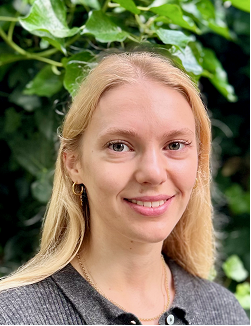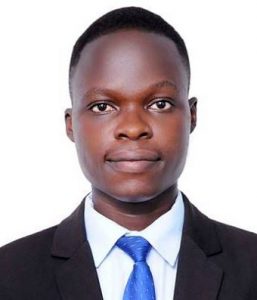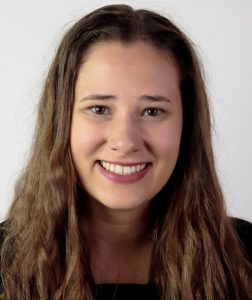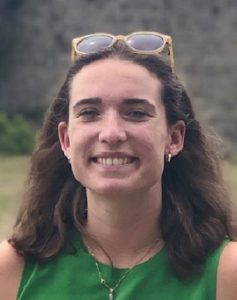Selection process | Eligibility | Application requirements | Application deadlines | Past winners
The CIOMS annual award of US$ 1500 is available to medical students for the best scientific article published – in a scientific peer-reviewed journal in English – in an area of clinical research related to medicines safety and efficacy/effectiveness, pharmacovigilance or research ethics. For the 2025 award, submissions must be received no later than 31 December 2025.
Medicines: For this award, medicines include biological medicines, vaccines and new and advanced therapies.
Pharmacovigilance: For papers dealing with medicines or vaccines safety related topics, CIOMS uses the WHO definition of pharmacovigilance: The science and activities relating to the detection, assessment, understanding and prevention of adverse effects or any other drug-related problem.
Research ethics: Research ethics papers dealing with health-related research involving humans are eligible.
Eligibility (Back to top)
-
Award applicants/recipients must be medical students and a member of a national member organization of the International Federation of Medical Students’ Associations (IFMSA). The applicant must provide evidence that she/he is a medical student currently enrolled in a medical school. PhD students who have studied medicine and who are now focusing on research ethics are also eligible.
-
An application can be made only for a scientific article that has been published in English in a peer-reviewed scientific journal.
-
In the case of a winning paper with two more student authors, the award sum will be distributed equally between those authors.
-
Applications for scientific articles with student-only authors are given priority. Papers with mixed authorship in which students are co-authors are eligible, if sufficient evidence of the student’s/students’ major contribution to the paper can be provided.
-
An individual may not receive more than one CIOMS award in a year, nor may an individual receive more than one award for the same body of work.
-
For the Selection Committee to select an award, at least three eligible applications must be received in an award cycle (usually one year). If this requirement is not met, an applicant may request his/her paper be considered in the next cycle.
Award application requirements (Back to top)
Only complete nominations will be considered by the award committee. All applications must be submitted by email to [email protected]. Each application should include:
-
A short cover letter from the (principal) applicant, including contact data and a brief description of why the application merits this award. This description should include clear, concise information about the accomplishments and impact of the work that the article submitted represents. Extensive documentation will not be distributed to the Selection Committee. Incomplete applications will be returned. Complete applications only will be forwarded to the Selection Committee. The cover letter should also include the contact data of the scientific supervisor of the student/s.
-
A copy of the article as it appeared in a peer-reviewed journal.
-
One or two letters of recommendation from the (principal) applicant’s institution. (A letter from the scientific supervisor of the university supporting the application is recommended but not mandatory.)
Selection process (Back to top)
A Selection Committee for Student Awards is responsible for reviewing the candidates’ applications for the award. The Selection Committee recommends the winner(s) of the award within 60 days of the closing date for receipt of applications. The Selection Committee may award up to three awards (of US$ 1500 each) in any one year or determine that no awards can be made for that year. Any awards are announced on the CIOMS website within 10 days of the Committee’s decision.
Applications will not be returned and will be destroyed after their eligibility expires.
Important note: The award system is based on trust. The applicant does not participate in the evaluation and selection process. The Selection Committee may request additional information from the applicant(s).
Resubmission (Back to top)
Any unsuccessful applicant can be considered for the award the following year. Applicants are encouraged to update or augment their award nomination materials, if appropriate, before the following year’s deadline. After consideration by the award committee during two consecutive years, the application is withdrawn.
Application deadline (Back to top)
Applications for the 2025 award must be received no later than 31 December 2025.
Questions (Back to top)
If you have questions about the award, please forward these to the CIOMS Secretariat at [email protected].
Past winners (Back to top)
|
2024: None of the applications received by CIOMS met the standards and criteria required. The Award Committee therefore decided not to grant the award for that year.
|
||
 |
2023: Clara Portwood from Oxford University, UK for her paper on Assessing adverse perinatal outcomes in pregnant women living with HIV (WLHIV) receiving HAART or zidovudine monotherapy, compared with antiretroviral therapy-naive WLHIV and HIV-negative women. | |
| 2022: None of the applications received by CIOMS met the standards and criteria required. The Award Committee therefore decided not to grant the award for that year. | ||
 |
2021: Gilbert Lazarus from Universitas Indonesia for his paper on the effect of human immunodeficiency virus infection on adverse events during treatment of drug-resistant tuberculosis. | |
 |
2020: Ronald Olum, Makerere University, Uganda. Ronald’s paper on the tolerability of oral itraconazole and voriconazole for the treatment of chronic pulmonary aspergillosis will help guide clinicians on the selection of first- and second-line agents for the management of CPA, and educate patients on the common side effects of these two agents. | |
 |
2019: Mieke Foster, Deakin University, Australia. In her paper, Mieke is proposing a simpler and safer approach to calculating medication doses for children with cardiac arrest. In the high-risk, high-stress and high-stakes environment of emergency resuscitation of children, there is a risk of medication errors. From crafting and completing an elegantly simple research project, Mieke went on to communicate with world experts in the field and writing an opinion piece that challenges the current paradigm of weight-based dosing in paediatric resuscitation. | |
 |
2018: Connie Rees, University Medical Center, Utrecht, the Netherlands. Connie is a joint first author of the publication that examines the willingness to participate in biomedical research in low- and middle-income countries (LMIC). Biomedical research with human subjects—from clinical trials for new products, such as an Ebola vaccine, to tests of generic medicines—is being conducted more and more often in LMIC, raising ethical issues around voluntary consent, undue inducement and the involvement of vulnerable populations. Connie reviewed data from 94 relevant articles and came up with a system to rank the reasons why people in LMIC accept or decline to participate in research. |
